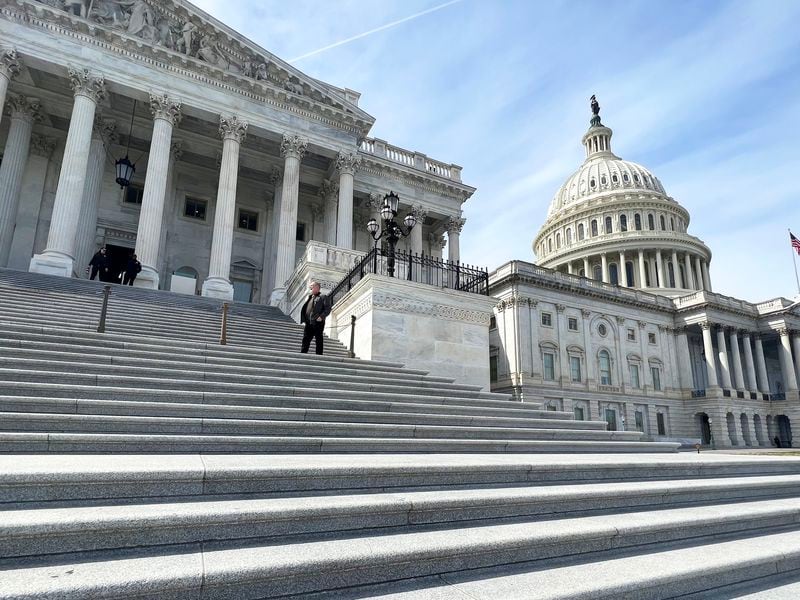The U.S. Senate joined the House of Representatives on Thursday in seeking to erase the controversial Securities and Exchange Commission (SEC) crypto policy known as Staff Accounting Bulletin No. 121, though President Joe Biden has vowed to veto the resolution. The Senate voted 60-38 on the effort to overturn the policy, commonly referred to as SAB 121, though the crypto industry may not breathe a sigh of relief over the initiative’s banking constraints, because Biden said that letting the rule be removed this way would disrupt “work to protect investors in crypto-asset markets and to safeguard the broader financial system.”
A dozen Democrats voted alongside a majority of Republicans in favor of the resolution, easily giving it well over the simple majority of votes needed to pass. However, the resolution did not receive enough votes to make it veto-proof.
Even Senate Majority Leader Chuck Schumer (D-N.Y.) bucked the leader of his party in opposing the SEC’s crypto effort, alongside other leaders in the Democratic Party.
Sen. Cynthia Lummis (R-Wyo.), who pushed for the resolution in the Senate, said the bulletin was “a disaster” that did not protect consumers.
“This is a win for financial innovation and a clear rebuke of the way the Biden administration and Chair Gary Gensler have treated crypto assets and marks the first time both chambers of Congress have passed standalone crypto legislation,” she said in a statement.
Issued by the agency in 2022, SAB 121 held that a company keeping a customer’s cryptocurrencies should record them on its own balance sheet – which could have major capital implications for banks working with crypto clients. Republican lawmakers bashed the SEC for instituting a policy without going through the necessary rule process, and the Government Accountability Office agreed, finding that the regulator erred in how it handled what should have been a rule instead of staff guidance.
“SAB 121 is non-binding staff guidance that, if followed, enhances important disclosure to investors in firms that safeguard crypto assets for others,” an SEC spokesperson said in a statement after the vote. “Time and again, we have seen crypto firms fail and watched as their customers lined up at the bankruptcy court in hopes of getting what they thought was legally theirs.”
For years, Republican lawmakers have fought with the federal financial agencies over the role of “guidance” documents, arguing that regulators stretch their authorities, and that the regulated industries feel they can’t afford to ignore guidance, whether it’s “non-binding” or not.
Lawmakers in the House and Senate went after SAB 121 under the Congressional Review Act, which allows Congress to overturn federal rules. A number of Democrats – including 21 in the House – joined with the largely Republican effort, defying the White House’s warnings.
Rep. Mike Flood (R-Neb.), one of the architects of the resolution, called the vote a “landmark result,” noting the bipartisan support.
“It is clear there is overwhelming opposition to SAB 121, and I urge President Joe Biden to reconsider his previous statement of intent to veto the resolution. The President should sign my resolution to ensure the SEC reverses course and sets America on a path to growing our digital financial future,” he said. Because they sought to kill the policy with the Congressional Review Act, a successful reversal would – by law – mean the SEC wouldn’t be able to pursue similar policies in the future, which the White House statement suggested “could also inappropriately constrain the SEC’s ability to ensure appropriate guardrails and address future issues related to crypto-assets including financial stability.”
Rep. Wiley Nickel (D-N.C.), who also cosponsored the House resolution, said the House “never should’ve had to resort to” the Congressional Review Act and reiterated his call to the SEC to withdraw the bulletin before it goes to Biden’s desk.
“Today’s Senate vote to repeal SAB 121 sends a clear bipartisan message: Congress will not stand idly by as Gary Gensler and the SEC deliberately sidestep the statutory rulemaking process and overstep their regulatory authority,” he said.
Apart from a previous crypto taxation provision that made its way into an infrastructure law despite the industry’s resistance, this marks the first time that Congress has moved on an issue that focuses on the crypto industry, and it was in a way meant to aid the sector.
SEC spokespeople did not immediately return a request for comment.
UPDATE (May 16, 2024, 17:20 UTC): Adds lawmaker statements.
UPDATE (May 16, 2024, 18:21 UTC): Adds SEC comment.
UPDATE (May 16, 2024, 23:40 UTC): Corrects Rep. Flood’s name.

























